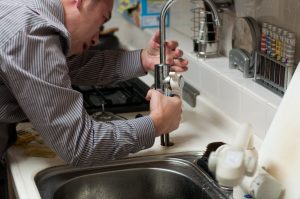Are You Claiming All Your Allowable Expenses?
4 mins
Self-Employed Workers Encouraged to Investigate Eligible Tax Relief Options

Are you claiming all your allowable expenses?
As employment slowly recovers from the global Covid19 pandemic, the UK’s 4.3 million self-employed workers are being urged to explore their full range of allowable expenses as tax relief options. David Redfern, tax preparation specialist and director of DSR Tax Refunds Ltd, is encouraging self-employed workers to investigate their tax efficiency measures in order to ensure their businesses are able to regain their strength after the past year’s period of financial uncertainty.
Unlike employees who are taxed through the PAYE system, sole traders who are self-employed pay tax through Self Assessment by filing a tax return after the end of each tax year. Redfern stated “People who work for themselves, such as plumbers, builders or hairdressers, only need to pay tax on their profits, which can basically be thought of as their income minus their business expenses. However, many of those who work for themselves don’t account for all of their allowable expenses, meaning that they are paying more tax than they should be. It is easy to focus on the larger, more noticeable expenses such as equipment or transport but the hidden allowable expenses can quickly mount up and make a considerable adverse effect on profit margins if not accounted for”. Self-employed people have a wider range of allowable expenses which can be claimed as tax relief than those taxed through PAYE. HMRC rules permit such expenses to be offset against business income for those working for themselves whereas employees are not considered to have such a wide range of potential expenses as a result of performing their employment duties.
Essential equipment and mileage costs, along with costs associated with renting premises and paying business rates, are the most common allowable expense items recorded on Self Assessment tax returns. However, there are several other business expenses which can easily be forgotten. Redfern explained, “Most business expenses, which are wholly and exclusively incurred as a result of trading, are considered by HMRC to be allowable expenses. For example, bank charges, interest on loans, credit card charges and overdraft costs are all allowable business expenses and can often add up to a considerable amount over the course of a year. Other expenses include the costs of advertising your business, business insurance, fees for professional services such as accountancy or legal services – these are all costs which can impact on business profits if not taken into account when completing your Self Assessment return”. HMRC regulations state that expenses must have been incurred solely in the course of running a business, trade or profession and must not entail any personal usage. Business records should be kept as evidence of the exclusive business use of the expense. Professional fees, such as legal fees, must not be incurred as a result of a crime or wrongdoing.
Certain expenses are not allowable for tax relief under any circumstances. Costs associated with general living are not considered to be eligible for tax relief for self-employed persons or employees. Redfern explains, “We all need somewhere to live, food to eat and clothes to wear so expenses relating to these are not allowed when claiming tax relief. HMRC considers these costs to just be the normal cost of living and would be necessary whatever the work or occupation that a person chooses to do. This means that mortgage or rent payments cannot be offset against trading profits, although accommodation costs incurred whilst working away from home would be allowable”. Civilian clothing is also not eligible as an allowable expense although safety clothing, if purchased or hired by the self-employed person, would be claimable.
A self-employed worker is expected to keep satisfactory business records to support any allowable expenses which are claimed as tax relief. Such records should be suitable to show that the expense was incurred wholly and exclusively in the course of trading and should be kept for 7 years according to HMRC Self Assessment rules. Construction sub-contractors who are taxed via the CIS scheme and have not yet submitted their 2020-21 Self Assessment tax return are encouraged to contact DSR Tax Refunds Ltd for help with ensuring they have accounted for all of their allowable expenses. They can be contacted on 0115 795 0232 or through their website.
About DSR Tax Refunds Ltd
DSR Tax Refunds Ltd is a firm of tax preparation experts who specialise in CIS tax returns for construction workers working within the Construction Industry Scheme (CIS) as well as employees who are eligible to claim a tax refund for their work-related expenses, including employees working from home as a result of the Covid19 pandemic. Their friendly and helpful team can help with all relevant paperwork to ensure clients claims are handled in an accurate and efficient manner.
For more about DSR Tax Refunds Ltd, visit https://tax-refunds.co.uk/
For media enquiries, please email info@tax-refunds.co.uk or call 0115 795 0232
DSR Tax Refunds Ltd
Registered Office: Ground Floor, Seven Mile House, 1 Mansfield Road, Papplewick, Nottingham, NG15 8FJ